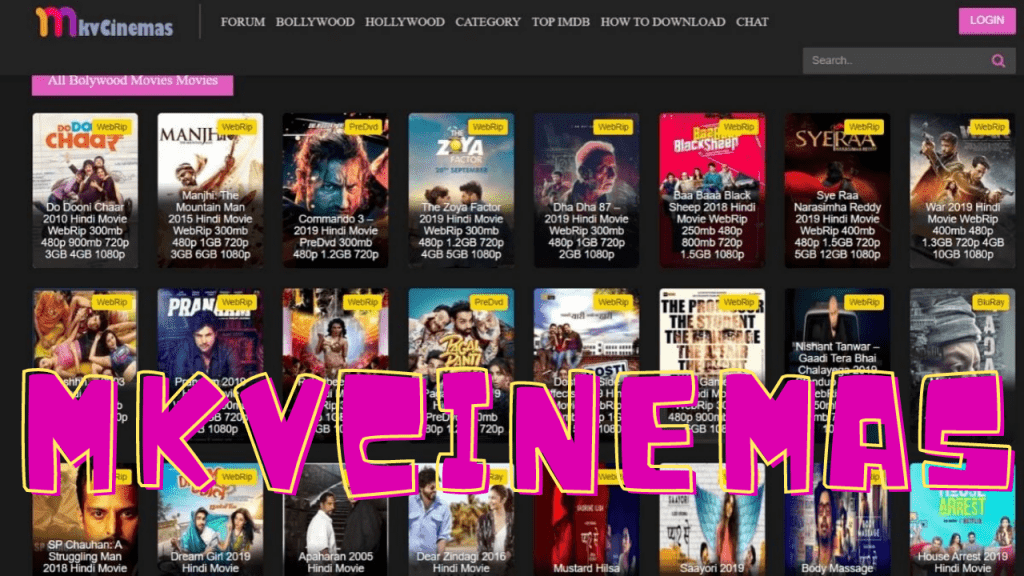Cinema MKV has become a popular term among movie enthusiasts looking for high-quality streaming experiences. In an era where digital media consumption is at an all-time high, understanding Cinema MKV is essential for anyone who loves movies. This article will delve deep into what Cinema MKV is, its advantages, technical specifications, and how to access it safely and efficiently.
As the demand for high-definition content increases, so does the need for formats that can deliver superior quality without compromising on size and accessibility. Cinema MKV has emerged as a reliable format that supports various video and audio codecs, making it a go-to choice for both casual viewers and cinephiles. By the end of this article, you will have a comprehensive understanding of Cinema MKV and how to take full advantage of it.
We will explore various aspects of Cinema MKV, including its definition, features, advantages over other formats, and how to use it effectively. Whether you're looking to upgrade your home theater system or simply want to enjoy your favorite films in the best quality possible, this guide is for you.
Table of Contents
- What is Cinema MKV?
- Features of Cinema MKV
- Advantages of Cinema MKV
- How to Access Cinema MKV
- Cinema MKV vs Other Formats
- Technical Specifications of Cinema MKV
- Troubleshooting Cinema MKV Issues
- Conclusion
What is Cinema MKV?
Cinema MKV refers to the use of the MKV (Matroska Video) format for streaming and storing high-definition movies. MKV is a flexible multimedia container format that can hold various video, audio, and subtitle streams in a single file. This versatility makes it a preferred choice for movie lovers who want to experience films in the best possible quality.
The MKV format supports a wide range of codecs, including H.264, H.265, VP9, and audio codecs like AAC, MP3, and DTS. This means that you can store high-definition video and surround sound audio in one file, enhancing your overall viewing experience.
Features of Cinema MKV
Understanding the features of Cinema MKV can help you appreciate why it is a favored choice among movie enthusiasts:
- Multiple Audio and Subtitle Tracks: MKV files can contain multiple audio tracks and subtitle options, allowing viewers to choose their preferred language and audio quality.
- High Compression Ratio: MKV files maintain high video quality while being relatively small in size compared to other formats, making them easier to store and stream.
- Chapter Support: MKV supports chapters, similar to DVDs, making it easier to navigate through movies.
- Metadata Support: MKV files can include metadata, which enhances the viewing experience by providing additional information about the content.
Advantages of Cinema MKV
There are several advantages to using Cinema MKV for your movie-watching experience:
- Superior Quality: Cinema MKV offers high-quality video and audio, making it ideal for home theater setups.
- Versatility: The ability to support a range of codecs ensures compatibility with various media players and devices.
- Ease of Use: Many media players support MKV files, making playback simple and hassle-free.
- Community Support: There is a large community of users and developers who continuously work on improving the MKV format, ensuring it remains relevant and up-to-date.
How to Access Cinema MKV
Accessing Cinema MKV can be done through various means:
1. Streaming Services
Some streaming platforms offer MKV files for their content. Make sure to check the specifications before streaming to enjoy the best quality.
2. Downloading Movies
You can download MKV files from various online sources; however, ensure these sources are legal and reputable to avoid copyright issues.
3. Using Media Players
To play MKV files, you need a compatible media player. Here are some popular options:
- VLC Media Player
- KMPlayer
- PotPlayer
- Media Player Classic
Cinema MKV vs Other Formats
When comparing Cinema MKV to other popular formats, several key differences arise:
- MKV vs MP4: While both formats support high-definition video, MKV is more versatile regarding the number of audio tracks and subtitles.
- MKV vs AVI: MKV files tend to be smaller than AVI files without losing quality, making storage easier.
- MKV vs MOV: MKV supports more codecs, making it a more flexible choice for diverse media.
Technical Specifications of Cinema MKV
Understanding the technical specifications of Cinema MKV can help you make informed decisions when choosing playback options:
- Video Codecs: H.264, H.265, VP9
- Audio Codecs: AAC, MP3, DTS
- Maximum File Size: Theoretically unlimited
- Maximum Subtitle Streams: Up to 32
Troubleshooting Cinema MKV Issues
If you encounter issues while playing Cinema MKV files, here are some troubleshooting tips:
- Ensure your media player is updated to the latest version.
- Check if the required codecs are installed on your device.
- Try playing the file on a different media player.
- Verify the integrity of the MKV file; it may be corrupted.
Conclusion
In summary, Cinema MKV is an excellent choice for anyone looking to enjoy high-quality movie streaming. Its versatility, superior quality, and broad support make it a popular format among movie enthusiasts. By understanding its features, advantages, and how to access it, you can elevate your movie-watching experience to new heights. Don't hesitate to explore Cinema MKV and discover a new world of cinematic enjoyment.
We encourage you to leave a comment below, share your experiences with Cinema MKV, or check out our other articles for more insights on digital media.
Thank you for reading, and we hope to see you back on our site for more exciting content!
When Did Pierre Gasly And Kika Start Dating?
Exploring Surrealism DIY: Unleash Your Creative Imagination
Ari Kitsua: The Rising Star In The World Of Entertainment

